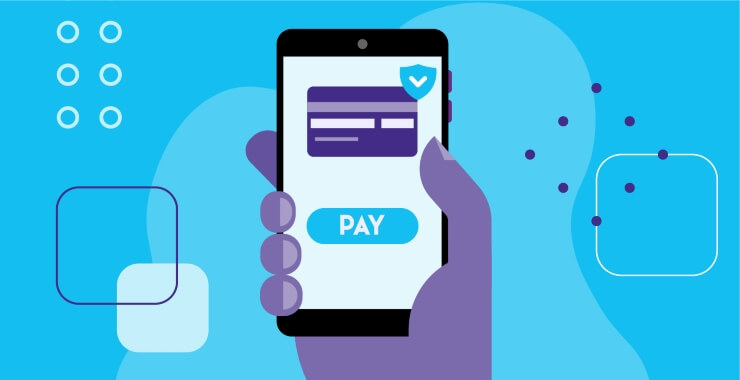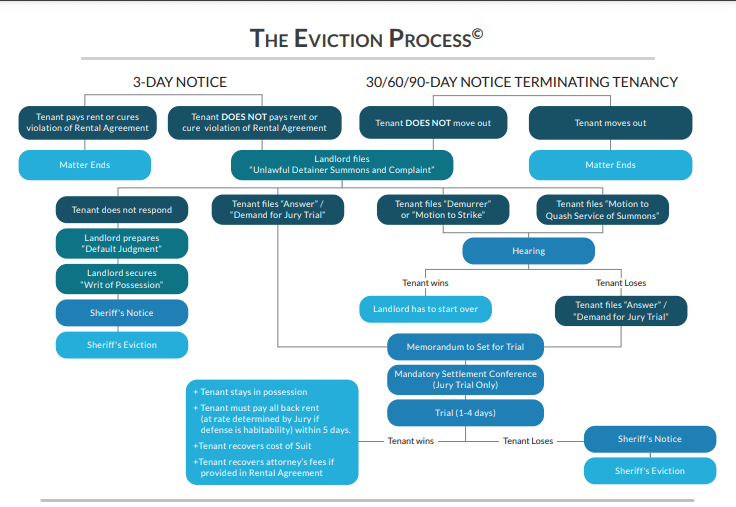
Accepting rent payments in a digital age after an eviction action is filed
Despite the value of paying rent online, it can tank an unlawful detainer (eviction) action when the landlord deposits payments and keeps the funds after the lawsuit is filed.
![]()
We have prepared a one-page chart of the carefully choreographed steps of eviction. It fundamentally has not changed.

An unfortunate scenario occurs when housing providers lose the ability to remove the undesirable tenant by accepting rent payments demanded in the notice that initiated the eviction action in the first place.
Put differently, if the theory for eviction is nonpayment of rent, the tenant then pays the rent demanded, then there is no case. The tenant fulfilled their contractual obligation.
Act one: After a 3-day notice demanding rent and the tenant fails to pay the rent, we commence the eviction lawsuit.
Recognizing the gravity of the matter and that they may be unhoused, getting a paycheck, or for whatever other reason, the tenant decides to pay the rent to settle up.
Act two: The landlord deposits the money, there's no effort to return it, and the tenancy starts anew. Perhaps the cash-starved landlord cannot resist the temptation of having money deposited in their account - especially when they haven't been paid rent in a long while - or, maybe they just don't know that the eviction action will have to start over.
![]()
In fact, when rent is accepted after the date specified in the 3-day notice to pay or quit, it amounts to a waiver of the unlawful detainer action - the landlord waives their right to proceed for non-payment of rent for that notice because the tenancy has been reinstated.
Sometimes, payments are made online, however, and this is where we run into difficulty.
Gone are the days when landlords only had a rent check in hand. A check is a piece of paper. After an eviction action is started, the landlord could just return it.
But enter online payment systems. They are a double-edged sword. Tenants can seamlessly pay rent online and it saves landlords valuable time with the added benefit of meticulous accounting. We personally use Appfolio.
Yet the marvels of technology can create a problem when the tenant subject to eviction unilaterally dumps money into the bank account of their landlord.
Unlike having a check in hand - it requires some sort of overt action on the part of the landlord, be it taking it to the bank or taking a picture of it and uploading it - electronic payments can be made without any interaction between the parties. The tenant infuses money into the landlord's bank account just because they can do so, to stave off eviction.
If this payment goes unnoticed and unrefunded, we lose the eviction case.
The solution
In the event of unwanted rent payments, housing providers can close the online portal and if it can't be closed, funds can be returned to the unwelcome tenant, with a letter explaining that there is no waiver of the right to proceed with an unlawful detainer action. Bornstein Law can facilitate this communication and draft a letter.

While it may be tortuous to return rent payments - especially when the landlord has been cash-starved - it may be prudent to proceed with the unlawful detainer action to find a more ideal tenant.
Whenever a nonpayment of rent eviction action is contemplated, please consider whether the Internet-savvy tenant can, in a last-ditch effort to avoid eviction, deposit funds into their landlord's account.
If they do, and we still want to proceed with the unlawful detainer action, we'll have to deal with it.
Also keep in mind that while smaller landlords are likely to notice a deposit in their account, larger landlords may not. The accounting department may not recognize that a rent payment was tendered by a tenant who is embroiled in an eviction action. The left-hand needs to know what the right hand is doing.
As a parting thought, we understand the financial hardship landlords have faced during the long, dark winter of COVID and the instinct to accept sorely needed rental payments, but it may not be a smart business decision to keep a chronically late-paying or otherwise problematic tenant.
While housing providers may be hard-pressed to refuse a rent payment, it may be advisable to do so and have a blank canvas through an unlawful detainer action and find a more ideal resident in the embattled unit - contact our office to have a dialogue.
